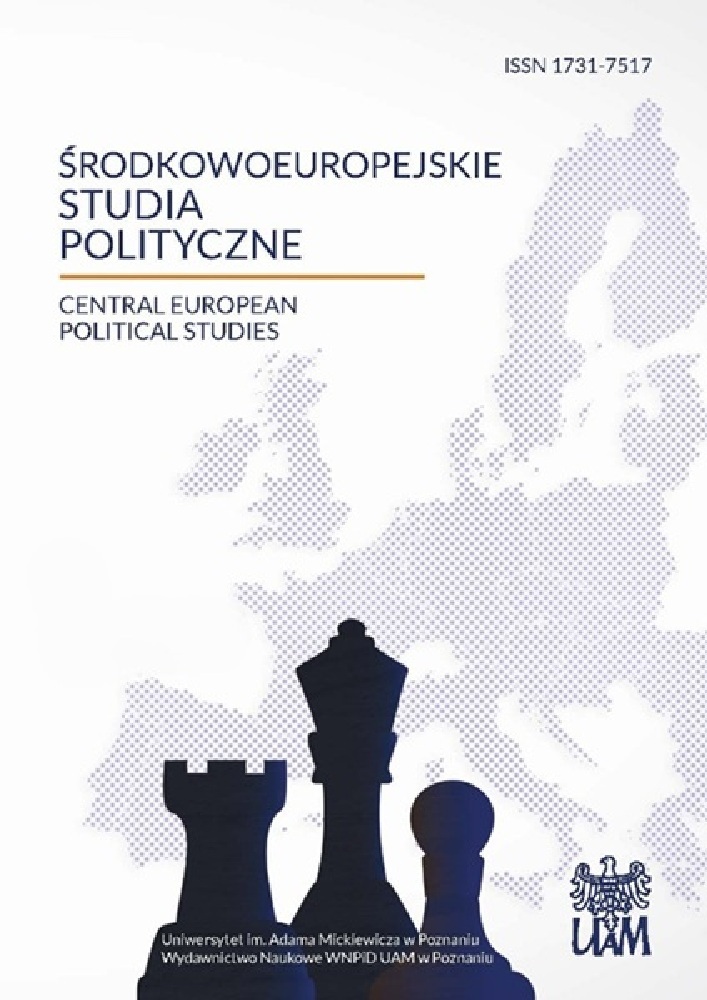Abstrakt
The purpose of the paper is to explore and analyze the news coverage of the first Polish presidency of the EU Council in the Greek media, as well as the role of the Greek media in the Greek citizens’ information process about issues regarding the Polish presidency and the promotion of European matters. Through a comparative quantitative and qualitative content analysis of the media, the paper aims to highlight the representations of the Polish EU presidency in the Greek media. In addition, the essay casts light on some crucial questions that arise: (1) How did the Polish EU presidency attract the Greek media’s attention? (2) What are the Greek media’s criteria for selection of EU-related events taking place in a foreign European country which are of great importance? (3) How many news items regarding the Polish EU presidency appeared on Greek TV, in newspapers and online media? (4) How frequently did representations of the term Poland, Polish EU presidency and Polish appear in Greek news items? (5) What was the Greek media’s attitude towards this foreign country? (6) How did the Greek media present the Polish EU presidency? As a host of numerous meetings and events or as an actor in charge, defining the major directions of the EU policy? (7) What was the attention given to Poland and to the Polish EU presidency in particular? (8) Within what spectrum did the Greek media comment on the role of the Polish EU presidency as chairman of the EU Council for 6 months?
Bibliografia
Anderson P. J., McLeod A. (2004), The Great Non-Communicator? The Mass Communication Deficit of the European Parliament and its Press Directorate, “Journal of Common Market Studies”, no. 42(5), pp. 897–917.
Bruter M. (2004), On what citizens mean by feeling ‘European’: perceptions of news, symbols and borderlessness, “Journal of Ethnic and Migration Studies”, no. 30(1), pp. 21–39.
De Vreese C. H. (2003), Framing Europe: Television News and European Integration, Aksant Academic Publishers, Amsterdam.
De Vreese C. H., Boomgaarden H. G. (2006), Media Message Flows and Interpersonal Communication: The Conditional Nature of Effects on Public Opinion, “Communication Research”, no. 33(1), pp. 19–37.
De Vreese C. H., Semetko H. A. (2002), Cynical and engaged: strategic campaign coverage, public opinion and mobilization in a referendum, “Communication Research”, no. 29(6), pp. 615–641.
European Commission (2004), Eurobarometer: Public Opinion in the European Union- National Report Greece, Rep. No. 61, Directorate General Press and Communication, Brussels (http://ec.europa.eu/public_opinion/archives/eb/eb61/nat_greece.pdf).
Machill M., Beiler M., Fischer C. (2006), Europe-Topics in Europe’s Media: The Debate about the European Public Sphere: A Meta-Analysis of Media Content Analyses, “European Journal of Communication”, no. 21(1), pp. 57–88.
Meyer Ch. O. (1999), Political Legitimacy and the Invisibility of Politics: Exploring the European Union’s Communication Deficit, “Journal of Common Market Studies”, no. 37(4), pp. 617–639.
Morgan D. (1995), British Media and European Union News: The Brussels News Beat and its Problems, “European Journal of Communication”, no. 10(3), pp. 321–343.
Mughan A., Gunther R. (2000), The Media in Democratic and Nondemocratic regimes: A Multilevel Perspective, in: Democracy and the Media. A Comparative Perspective, eds. A. Mughan, R. Gunther, Cambridge University Press, Cambridge, pp. 1–27.
Norris P. (2000), A Virtuous Circle: Political Communications in Post-Industrial Societies, Cambridge University Press, Cambridge.
Page B. I., Shapiro R. Y. (1992), The Rational Public: Fifty Years of Trends in Americans’ Policy Preferences, Chicago University Press, Chicago.
Peter J., Semetko H. A., de Vreese C. H. (2003), Politics on television in Europe: How European is it, “EU Politics”, no. 4(3), pp. 305–327.
Peter J., de Vreese C. H. (2004), In search of Europe In search of Europe – A cross-national comparative study of the European Union in national television news, “Harvard Journal of Press/Politics”, no. 9(4), pp. 3–24.
Prior M. (2005), News vs. Entertainment: How Increasing Media ChoiceWidens Gaps in Political Knowledge and Turnout, “American Journal of Political Science”, no. 49(3), pp. 577–592.
Schlesinger Ph. (1999), Changing Spaces of Political Communication: The Case of the European Union, “Political Communication”, no. 16, pp. 263–279.
Semetko H. A., de Vreese C. H., Jochen P. (2000), Europeanised politics – Europeanised media? European integration and political communication, “West European Politics”, no. 23(4), pp. 121–141.
Trenz H.-J. (2004), Media Coverage on European Governance Exploring the European Public Sphere in National Quality Newspapers, “European Journal of Communication”, no. 19(3), pp. 291–319.
Licencja
Copyright
© 2013, Uniwersytet im. Adama Mickiewicza w Poznaniu, Wydawnictwo Naukowe Instytutu Nauk Politycznych i Dziennikarstwa
OPEN ACCESS
